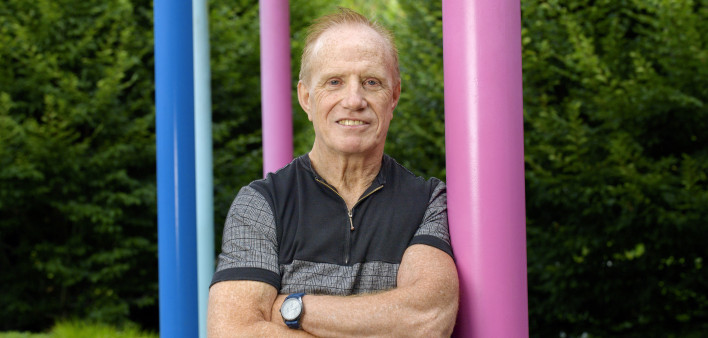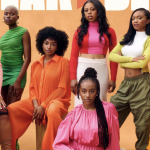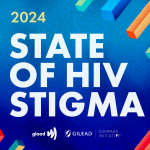I am a 66-year-old queer, working-class Irish man living with HIV since 2007. I am also an activist and advocate for people living with HIV in my country. I was born in 1957, in an Ireland that was dominated and controlled by the Catholic Church. This had an enormous impact and effect on how I dealt with my sexuality. I spent my life until I was 37 living in fear that people would discover my secret. I attempted suicide on a number of occasions, but I overcame my struggles, and I am here to tell the tale.
When I was diagnosed with HIV in 2007, I was faced with a choice: Go back into a closet, as it were, or be open, vocal and visible about my HIV. Knowing the damage that living with a secret had done to my life, I knew I really had no choice. I am a member of the Fast-Track Cities steering committee for my city. I have been on radio and newspapers. I have had articles published. Today, I am an out, proud and very visible queer man who happens to be living very happily with HIV.
Of course, it was not always like this. I have been in recovery for 29 years now. I learned a lot about myself at AA meetings. I learned that my sexuality was not the problem, but the social, religious and structural norms and values of the society that I grew up in was the real problem.
Once I realized this, I was able to come out to myself. I stopped looking for acceptance from outside sources. I realized as long as my self-esteem depended on whether others accepted me or not, I would always be rejected. Even if I was accepted, it was always on others’ terms.
My journey was one of self-discovery; it was painful and very hard at times. But it was worth it. My life experiences are what have shaped me, made me the man I am today.
I am very vocal, visible and out here in Ireland along with other activists. I think the greatest barrier to ending the HIV pandemic is stigma. For me, the stigma I grew up with because of my sexuality is very like the stigma that surrounds HIV. In Ireland, it was only by becoming open and visible about our sexuality that we obtained the rights we now have for the LBGT+ community.
I have had a number of relationships over the years, but honestly, I had real difficulty maintaining any real meaningful ones. I think I was always looking for relationships to fix me. Today, I am really comfortable in my own skin. I never thought I would be able to say that. I am loving being single and, at 66, finally having a relationship with myself.
I tried so hard to fit in, to be accepted by society. I even spent four years studying to be a Catholic priest. I joined the army. I thought that if I could fit in, become like them, I would be OK.
But I now realize nothing I did to fit in would ever work because there was nothing wrong with me. I did not need fixing—I just needed to find the strength to be myself. My experience of dealing with my sexuality helped me so much when it came to dealing with my HIV.
HIV is an illness, a virus, nothing more nothing less. It does not judge people; it does not moralize—unlike people. I work hard now to try and raise people’s awareness about HIV. Not just within the LBGT+ community but for anyone living with HIV.
We have a support group here in my home city, and it is made up of men, women, straight and queer. Working together is the only way that we can make society understand HIV.
I got cancer in 2010. I made up my mind that if I beat the cancer, I would leave my job and head off to college. I did, and in 2017, I got my degree. I then decided to write a book about my experiences. It is a short book because it focuses on the emotional, mental and psychological effects that living with a secret can have on a person. It is not an account of my whole life but a very important part of my life.
I will say no more now except that as a young queer man, I never thought I would be living the life I am now. A life free from fear, a life of complete openness. I threw open both my closet doors: my sexuality and HIV doors. It is the best thing I have ever done. I hope that someday soon, we will see an end to the HIV pandemic, and I will continue to do my part in bringing this about.
The biggest thing I have done so far as an activist is writing my book, My Secret Life. It is available on Amazon and other online bookstores.
What three adjectives best describe you?
Introverted, strong, empathetic.
What is your greatest achievement?
I thought my greatest achievement was leaving work when I got cancer and going to college and getting a degree at 60. But now that has been topped by writing and getting my book published.
What is your greatest regret?
Honestly, I cannot regret anything. Everything that has happened to me throughout my life is what has shaped me and formed the man I am today.
What keeps you up at night?
I am happy to say even though, I am not rich or well off, I have everything I need. I used to find it hard to switch off and get to sleep. But now, once I hit the pillow, I am gone.
If you could change one thing about living with HIV, what would it be?
The one thing I would change is the fact that there is no cure. My cancer is gone; if I could, I would do the same for HIV.
What is the best advice you ever received?
When I am feeling really down and complaining about my lot in life, a friend always reminds me of the alternative. You could be six feet under. As long as you are alive, make the most of life that you can.
What person in the HIV community do you most admire?
A young Irish activist called Robbie Lawyer here in Ireland. He works so hard on raising awareness about HIV today. He fills me with hope that society will realize HIV is very different today.
What drives you to do what you do?
I am driven by my desire to make the lives of people living with HIV so much better than they are right now. We can not only survive with HIV, but we can also thrive.
What is your motto?
U=U is my motto. It changed my life.
If you had to evacuate your house immediately, what is the one thing you would grab on the way out?
My sister. I share the house with her.
If you could be any animal, what would you be? And why?
A cat. Cats are so self-reliant and independent, something I had to work hard to become.







Comments
Comments